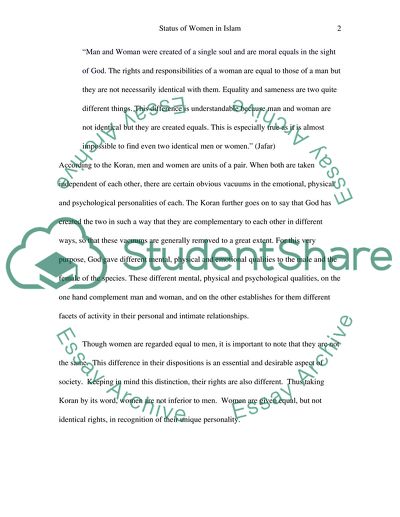Cite this document
(The Status of Women in Islam Essay Example | Topics and Well Written Essays - 1750 words, n.d.)
The Status of Women in Islam Essay Example | Topics and Well Written Essays - 1750 words. https://studentshare.org/humanitarian/1536122-status-of-women-in-islam
The Status of Women in Islam Essay Example | Topics and Well Written Essays - 1750 words. https://studentshare.org/humanitarian/1536122-status-of-women-in-islam
(The Status of Women in Islam Essay Example | Topics and Well Written Essays - 1750 Words)
The Status of Women in Islam Essay Example | Topics and Well Written Essays - 1750 Words. https://studentshare.org/humanitarian/1536122-status-of-women-in-islam.
The Status of Women in Islam Essay Example | Topics and Well Written Essays - 1750 Words. https://studentshare.org/humanitarian/1536122-status-of-women-in-islam.
“The Status of Women in Islam Essay Example | Topics and Well Written Essays - 1750 Words”. https://studentshare.org/humanitarian/1536122-status-of-women-in-islam.


